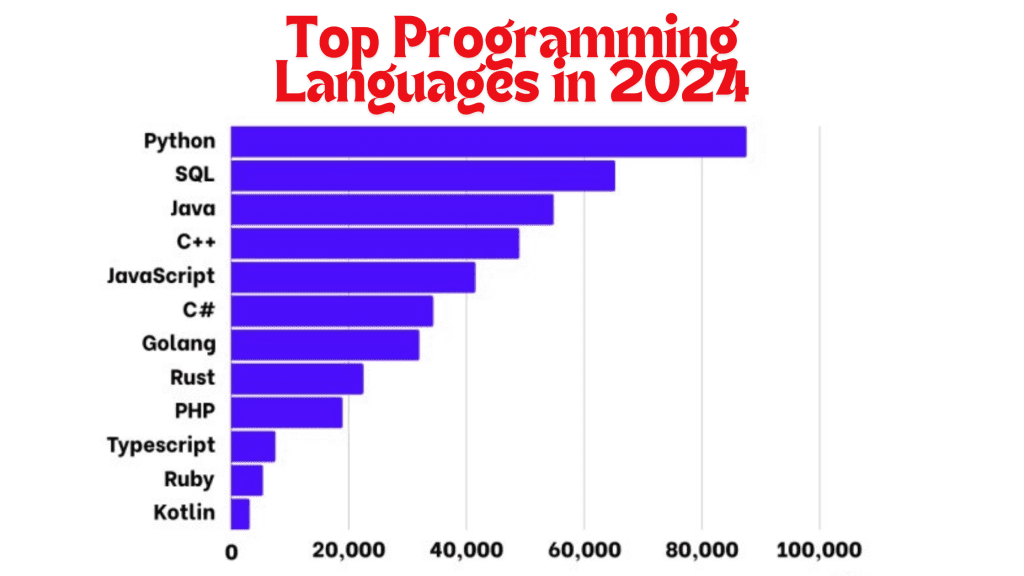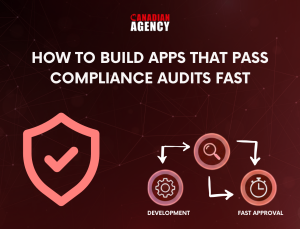Python stands out for its simplicity, readability, and versatility among many top programming languages. Python’s extensive libraries and frameworks, such as Django and Flask, accelerate the development process, allowing for the rapid creation of secure, maintainable web applications. Its applications range from simple web development to complex machine learning algorithms, making it popular with developers and businesses. However, leveraging Python’s full potential requires hiring the right python developer. The right hire can turn your vision into a seamless, user-friendly web application, while the wrong one can save resources and take advantage of opportunities. This article will guide you through hiring a right Python web developer and ensure informed decisions to meet your business goals.
Why Hiring the Right Python Web Developer Matters?
Hiring the right Python web developer is crucial to the success of your project. A skilled developer not only brings technical expertise but also contributes to the overall project strategy, ensuring that your application is robust, scalable, and aligned with your business goals. The right developer can save you time and money, reduce development risks, and enhance the quality of your product.
Pros and Cons of python Programming Language
What is the Work of a Python Developer?
A Python developer is responsible for writing and testing code, debugging programs, and integrating applications with third-party web services. Their work involves:
- Building and maintaining web applications.
- Developing backend components.
- Integrating them with the front-end developed by other team members.
Here’s a detailed look at their primary responsibilities:
- Web Application Development: Creating scalable and efficient web applications tailored to business needs.
- Backend Development: Handling server-side logic, ensuring the application performs well, and managing databases.
- API Integration: Developing and integrating APIs to connect different services and applications seamlessly.
- Database Management: Designing, implementing, and maintaining database systems that support web applications.
- Security and Data Protection: Implement security measures to protect data and ensure compliance with data protection regulations.
- Collaboration: Working closely with front-end developers, designers, and other stakeholders to create cohesive and functional products.
- Troubleshooting and Debugging: Identifying and fixing bugs and performance issues to ensure the application runs smoothly.

Things to Know Before You Hire Python Developers
Before embarking on the journey to hire Python web developers, it’s crucial to have a clear understanding of several key aspects:
- Project Requirements: Define your project’s scope, objectives, and technical requirements.
- Budget: Establish a realistic budget for hiring and project development.
- Timeline: Determine the timeline for project milestones and final delivery.
- Development Team Structure: Decide whether you need a solo developer or an entire team.
- Hiring Model: Choose freelance developers, full-time employees, or development agencies.
Identify the Necessary Technical Skills
When considering hiring a Python web developer, it’s essential to identify the technical skills that align with your project requirements.
Key technical skills include:
- Proficiency in Python: Deep understanding of Python syntax, libraries, and frameworks such as Django, Flask, or Pyramid.
- Web Technologies: Knowledge of HTML, CSS, JavaScript, and relevant frameworks.
- Database Management: Experience with SQL and NoSQL databases like PostgreSQL, MySQL, and MongoDB.
- Version Control: Familiarity with Git and GitHub for code versioning.
- API Development: Proficiency in developing and integrating RESTful APIs.
- Testing and Debugging: Skills in writing tests using frameworks like pytest and debugging tools.
Top Python Testing Framework
How to Hire Experienced Python Developers?
Hiring experienced Python developers requires a strategic approach to ensure you find the best fit for your project. Here are the steps to follow:
Define Your Project Requirements
Begin by clearly defining what you need from the developer:
- Scope: Outline the full scope of the project, including specific features and functionalities. This involves detailing the key components, user interfaces, system interactions, and any integrations with third-party services or APIs. Clearly defining the scope ensures all aspects of the project are covered and provides a comprehensive guide for the development process.
- Technical Specifications: List the technologies and frameworks you expect the developer to be proficient in. This might include programming languages like Python, frameworks such as Django or Flask, and other tools like version control systems (Git) or databases (MySQL, PostgreSQL). Specifying these technical requirements helps in identifying candidates with the right skill set for your project.
- Project Milestones: Set realistic timelines for key deliverables by establishing project milestones. Each milestone should mark a significant phase of the project, making it easier to track progress and stay on schedule. This approach breaks the work into manageable sections and sets clear expectations for both you and the developer.
- End Goals: Clearly state the project’s end goals and expected outcomes. Define the main objectives, such as the final product’s functionality, user experience targets, and performance benchmarks. This ensures the developer understands what is needed and can work towards achieving these goals.
Look for Experience and Expertise
When reviewing candidates, prioritize those with a proven track record:
- Portfolio: Examine previous projects to assess the candidate’s experience and expertise. This provides insight into their skills, the complexity of projects they have handled, and the quality of their work.
- Case Studies: Request detailed case studies that highlight their problem-solving skills and successes. These give a deeper understanding of their approach to challenges and their ability to deliver effective solutions.
- References: Ask for references from previous clients or employers to get feedback on their performance. This helps verify their reliability, work ethic, and the satisfaction of those they have worked with before.
Conduct Technical Interviews
Technical interviews are crucial in evaluating a candidate’s skills:
- Coding Tests: Administer coding tests to evaluate the candidate’s problem-solving abilities and coding style. These tests simulate real-world tasks, allowing you to see how they approach problems and develop solutions. This helps ensure they can write clean, efficient, and functional code, applying best practices and coding standards effectively.
- Technical Questions: Ask questions about their experience with specific technologies and frameworks. Inquire about their hands-on experience with tools like Django, Flask, or other relevant frameworks, and how they have used these in past projects. Discuss specific challenges they faced and how they overcame them using these technologies. This helps assess their depth of knowledge, practical expertise, and ability to apply these tools effectively in real-world situations, ensuring they are well-equipped to handle your project’s technical requirements.
- Problem-Solving Scenarios: Present real-world scenarios to gauge their analytical and troubleshooting skills. This shows how they approach challenges and develop effective solutions in practical situations.
Discuss Payment and Contract Terms
Clarify payment and contract terms before finalizing the hire:
- Payment Structure: Decide on an hourly rate, fixed price, or retainer model based on the project scope. A fixed price suits well-defined projects, providing clear budget expectations. An hourly rate offers flexibility for evolving requirements. A retainer model is ideal for ongoing work or maintenance, ensuring availability. Choosing the right payment structure ensures mutual understanding and reduces potential conflicts.
- Contract Length: Define the contract duration, specifying the start and end dates, to set clear expectations for the project’s timeline. Include any provisions for extensions to accommodate potential changes or additional phases of the project. This ensures both parties understand the commitment period and can plan accordingly for any continuation or future work.
- Milestones and Payments: Establish clear milestones and associated payment schedules to link payments with project progress and deliverables. This ensures transparency and accountability throughout the project lifecycle. By defining specific checkpoints and the corresponding payments upon their completion, both parties can track the project’s advancement and ensure that expectations are met at each stage.

Common Mistakes When Choosing Python Developers
Avoiding common mistakes when hiring Python developers can make a significant difference in the success of your project. Let’s delve deeper into each of these potential pitfalls:
Overlooking Cultural Fit
Cultural fit is essential for creating a harmonious and productive working environment. When developers align with your company’s culture, they are more likely to share similar values, work ethics, and communication styles as your existing team members. This alignment fosters better collaboration, enhances teamwork, and promotes a positive atmosphere where everyone can thrive.
How to Avoid This Mistake:
- Understand Your Culture: Clearly define your company culture, including your values, work ethics, and team dynamics.
- Interview for Fit: During the interview process, ask questions about how candidates handle teamwork, conflict, and pressure.
- Trial Periods: Consider a trial period or probationary phase to see how well the developer integrates with your team.
Not Defining Clear Requirements
Unclear project requirements can cause misunderstandings, scope creep, and delays in project completion. When developers do not have a precise understanding of what is expected from them, they may misinterpret tasks or overlook crucial details, leading to inefficiencies and rework. Clear and well-defined requirements ensure that developers know exactly what needs to be done, enabling them to deliver effectively and efficiently.
How to Avoid This Mistake:
- Detailed Project Specifications: Provide a comprehensive document outlining the project’s scope, objectives, and technical requirements.
- Regular Updates: Maintain ongoing communication to clarify any ambiguities and update the developer on any changes in requirements.
- Feedback Mechanism: Establish a system for regular feedback to ensure the developer’s work aligns with your expectations.
Ignoring Portfolio Projects
A developer’s portfolio is a testament to their experience and skill. It shows their ability to handle projects similar to yours and gives insight into their work quality.
How to Avoid This Mistake:
- Review Portfolios Thoroughly: Examine the complexity, functionality, and design of past projects.
- Ask for Case Studies: Request detailed explanations of their role in previous projects and the challenges they overcame.
- Client References: Contact previous clients to get an honest assessment of the developer’s performance and reliability.
Underestimating Communication Skills
Effective communication is vital for project success, especially if the team is remote or distributed. Miscommunication can lead to errors, missed deadlines, and frustration.
How to Avoid This Mistake:
- Language Proficiency: Ensure the developer is fluent in your working language to prevent misunderstandings.
- Communication Tools: Establish clear communication channels and tools, such as Slack, email, or project management software.
- Regular Meetings: Schedule regular meetings for updates, feedback, and addressing any concerns.
Relying Solely on Certifications
While certifications can indicate a level of knowledge, they do not always reflect practical experience or problem-solving abilities. Real-world experience is often more valuable.
How to Avoid This Mistake:
- Prioritize Experience: Look for developers with proven experience and a solid portfolio.
- Practical Tests: Conduct coding tests and practical assessments to evaluate their skills in real-world scenarios.
- Balanced View: Consider certifications as one of many factors in the hiring decision, not the sole criterion.
Not Conducting a Technical Interview
Technical interviews provide a direct assessment of a candidate’s skills and problem-solving abilities. Skipping this step can result in hiring someone who lacks the necessary expertise.
How to Avoid This Mistake:
- Structured Interviews: Prepare a structured technical interview process that includes coding challenges and scenario-based questions.
- Real-World Problems: Use real-world problems relevant to your project to gauge the candidate’s practical skills.
- Multiple Assessors: Involve various team members in the interview process to get diverse perspectives on the candidate’s abilities.
Neglecting Long-term Potential
Focusing solely on immediate needs can lead to hiring a developer who may not be a good fit for future projects or long-term collaboration.
How to Avoid This Mistake:
- Career Goals: Discuss the candidate’s career aspirations and how they align with your company’s future projects.
- Skill Development: Look for a willingness and ability to learn new technologies and adapt to evolving project requirements.
- Future Plans: Consider the potential for the developer to grow within your organization and take on more responsibilities over time.
Offering Below-Market Compensation
Competitive compensation is crucial for attracting and retaining top talent. Offering below-market rates can lead to high turnover and difficulty finding skilled developers.
How to Avoid This Mistake:
- Market Research: Conduct thorough research to understand the current market rates for Python developers with the experience and skills you need.
- Competitive Offers: Offer competitive salaries and benefits within your industry and location.
- Additional Perks: To make your offer more attractive, consider offering additional perks such as flexible work hours, remote work options, and professional development opportunities.
Conclusion
Hiring a Python web developer requires more than just evaluating technical skills. Define precise project requirements, assess experience, conduct thorough interviews, and avoid common hiring mistakes to find the right fit. A good developer can drive your project’s success and contribute to your business growth. Invest time in the hiring process to ensure a well-executed web application that meets your goals and exceeds expectations.




